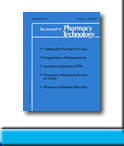 |
 |
CLINICAL EFFECTIVENESS
OF SERTRALINE THREE TIMES A WEEK COMPARED WITH ONCE-DAILY REGIMEN
Shyam D Karki, Terrance J Bellnier, Gule-Rana Masood,
and
William R Patterson
To request full article click here.
OBJECTIVE: To evaluate the clinical effectiveness of sertraline three-times-a-week regimen in community nursing home residents who were stabilized on sertraline once-daily regimen for >12 weeks for management of depression.
METHODS: All residents with diagnosis of depression stabilized on sertraline once-daily for >12 weeks for management of depression were entered into the study. After assessing depression at baseline by the 30-item Geriatric Depression Scale (GDS), 17-item Hamilton Depression Scale (HAM-D), and a five-item Clinical Global Impression Scale (CGI), the treatment regimen of all residents was changed to equivalent doses of sertraline three times a week. Depression was reassessed at 12 weeks by the GDS, HAM-D, and CGI scales.
RESULTS: Forty-four residents of a community nursing home participated in the study. Their mean ± SD age was 83 ± 12 years; there were 13 men and 31 women. Depression scores at baseline and after the three-times-weekly regimen was initiated were GDS (7.7 ± 0.9 vs. 7.4 ± 0.6), HAM (4.3 ± 0.5 vs. 4.2 ± 0.4), and CGI (3.0 ± 0.5 vs. 3.0 ± 0.4). Mean daily sertraline cost was $1.88 ± 0.4 before and $0.76 after the change in regimen.
CONCLUSIONS: Our results indicate that sertraline three times weekly is as clinically effective as the once-daily regimen in the management of depression in our population of nursing home residents and achieves significant cost savings.
J Pharm Technol 2000;16:43-6.
To request full article click here.
|
|
|
||
|

